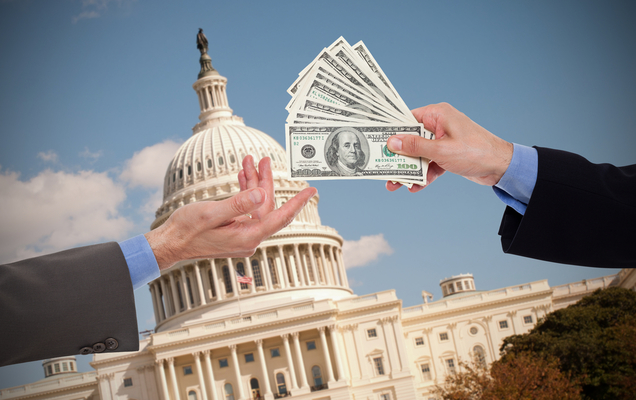The following was written by Convention of States Action President Mark Meckler and originally appeared in Townhall.
Today’s Twitter-dominated politics frequently seem removed from the lofty ideals of our Founding Fathers, but Pulitzer Prize-winning historian Bernard Bailyn explains we share a common (and perhaps perpetual) battle against one stubborn problem: cronyism.
His stunning book, The Ideological Origins of the American Revolution, has now been published in a Fiftieth Anniversary Edition. In it, Bailyn explains two primary lenses through which to view the politics of pre-revolutionary America: political culture and political structure. In the process, he also helps us see our own political situation in a new light.
1. On Political Culture
As you might imagine, Colonial America had distinctively British assumptions and expectations that affected how they reacted to the events of the day.
However, these assumptions weren’t just carbon copies of eighteenth-century English ideals or the intellectual repercussions of great British thinkers like John Locke. Rather, their beliefs were shaped by a specific strand of English thought promoted by the political activists who considered themselves opposition elements.
Those people attacked influence and ministerial corruptions. Basically, they fought against the habit of politicians to reward friends with positions of power, regardless of their qualifications. Bailyn explains that this attack on cronyism was “the one idealistic feature of early eighteenth century English politics, the only political program which could appeal to men with a sense of moral purpose.”
The colonists had ready access to the opposition literature, which was quite popular because America’s politics gave a “heightened meaning and a sharper relevance to...the libertarian doctrines of coffeehouse radicals and the rancor of the” English opposition.
This is where I’ve been wrong. The American revolutionary culture itself was not solely the product or natural result of 150 years of self-governance, as I have so often said in the past. Instead, it was imported directly and aggressively from the heart of British opposition political culture itself. It was then influenced and even more radicalized by the situation in the colonies.
So, the 150 years of self-governance in the colonies were important in creating the atmosphere of the revolution, but the core ideas and philosophy were imported directly from England.
2. On Political Structure
Bailyn also points out that although it seemed to colonists that their British governors had too much power, they actually lacked real influence: the ability to widely distribute the spoils of power. This general lack of influence had a profound stabilizing effect.
Anyone with even an ounce of power was dependent upon favors from above for that power, ultimately all the way to the Crown. While inherently corrupt, this is a very stabilizing influence on a political system.
America is rapidly becoming a similar society, one that celebrates and rewards who you know rather than what you know—or even what you do. We’re not as bad as the tyranny of eighteenth-century England, but we’re on a path toward it. It's a favor-based society, where those in favor with the crown get the spoils and a seat at the table. But the job of citizens, or We the People, is not to get our seat at the table, it’s to get rid of the table by eliminating cronyism.
The existential threat to our liberty is not Donald Trump, as the media would have us believe. Rather, it’s the ability of the government to reward its friends.
And this problem is not exclusive to the Republican or Democrat party; the leadership of each political party has its own form of cronyism. What they tend to do is decry the patronage of the other party while carefully guarding their own.
This explains why the Republicans won't eliminate Obamacare, which has a huge stream of money associated with it that both sides can use to pay influential constituents. It also explains why they won't eliminate subsidies to unaffordable and unreliable forms of electric power, even though the recipients are all Democrats.
These policies are punitive to average Americans, but inconsequential to ruling elites who live in uber-expensive coastal climates. They don't want to gore the opposition’s ox, lest the opposition gore theirs.
It doesn’t matter to which party you belong – your party has a cronyism problem. Sen. Mike Lee (R-UT) said, “The first step in a true conservative reform agenda must be to end this kind of preferential policymaking. Beyond simply being the right thing to do, it is a pre-requisite for earning the moral authority and political credibility to do anything else.”
In other words, today’s politicians can—and must—participate, with the people, in the perpetual struggle against cronyism, even if the battle is in their own party, or (more likely) in their own hearts.
The Founding Fathers would want nothing less.


